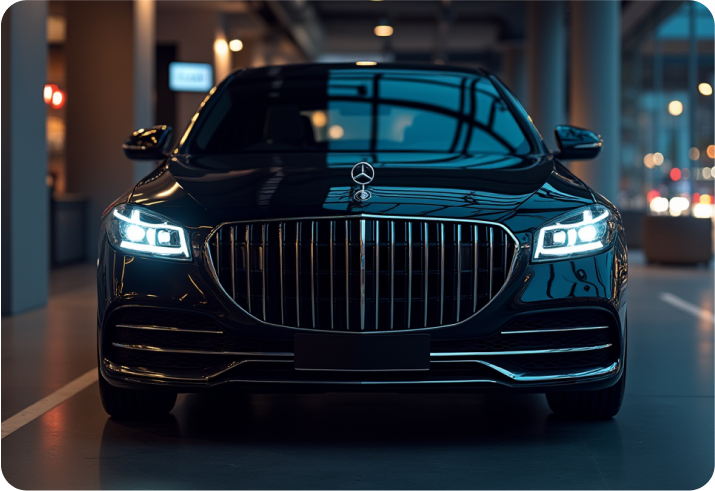Top 7 Upcoming Future EV Cars in India

The debate around the sustainability of petrol and diesel cars is ongoing. Amidst such chaos, EVs come as a saviour that the vehicle industry cannot deny any more. As we zoom into the future, the automotive sector is transforming for good. One of the most notable revolutions in the Indian car market is the surging interest in Electric Vehicles (EVs). The idea of emission-free, fuel-efficient, and technologically advanced cars is nothing short of a dream come true. From climate activists to car enthusiasts, the prospect excites everyone. In this article, we'll dive deep into the list of top upcoming EV cars in India in 2024. We will take a sneak peek into their features, performance, launch date, and specifications. So, fasten your seatbelts as we take a thrilling ride through the best upcoming EV cars in India.
The Rise of Electric Vehicles in India
India, like many other countries, is recently coming into the news frequently for making significant strides in adopting electric vehicles. Factors like increasing environmental concerns, government incentives, and growing charging infrastructure play their roles in the shift. The Indian EV industry is awaiting a revolution, with 2024 being marked as a launch year for the upcoming electric cars in India.
1. MG 5 EV - Jan 02, 2024
Priced at 27 lakhs, MG Motors is set to launch the MG 5 EV on January 2, 2024. Equipped with a 61.1kWh Lithium-ion battery, this EV can cover 402 km in one go. The car will only take 35 minutes to be 10% to 80% charged using a 150kW DC fast charger. The car can reach a speed of 0 to 100kph in 7.7 seconds. It can run at 115mph at maximum speed.
2. Toyota bZ4X - Jan 2024
Priced at around 55 lakhs, Toyota bZ4X is ready to amaze EV enthusiasts in January 2024. Being fit to run on various terrains, the vehicle will come with Toyota Safety Sense 3.0 for automatic emergency braking, automatic high-beam assistance, blind-spot monitoring, forward collision warning, lane-departure warning, lane-keeping assistance, and other similar detection points. Powered with two powertrains, it can run at 252 miles per hour.
3. Skoda Enyaq iV - Feb 05, 2024
Priced at 60 lakhs, Skoda's Enyaq iV is set to hit the Indian roads in February 2024. With an option to choose the Enyaqs among 60, 80, and 80x, the Enyaq iV 60 comes with a 58kWh battery. The version 80 has a 77Wh battery. Being a double-motor setup the 80x offers a four-wheel drive.
4. MG 4 EV - April 15, 2024
Priced at 30 lakhs, the MG 4 EV is ready to launch on April 15, 2024. With two battery pack options: 51kWh and 64kWh, this EV will redefine the compact EV segment with its blend of affordability, cutting-edge technology, and a captivating design.
5. Jeep Avenger EV - April 2024
One of the most affordable EVs on our list, Jeep, the iconic American brand, is all set to electrify Indian roads with the Avenger EV in April 2024. Known for its ruggedness and off-road capabilities, the Jeep Avenger EV will come with safety features like ISOFIX and ABS anchorage points and dual airbags. The car is expected to take only three minutes to cover 30 km which makes it ideal for daily travels. With its 54kWh lithium-ion battery, it might take 24 minutes to be charged 80% from 20%. It’s one of the best upcoming EV cars in India.
6. Mini Cooper SE - June 20, 2024
Priced around 55 lakhs, the Mini Cooper SE is scheduled for a June 20, 2024 launch. This pint-sized EV has a hatchback body type and an OLED display inside it. With 250 miles of range, the EV will take only 30 minutes to reach 80% charges from 10%.
7. Mahindra XUV e8 - Dec 15, 2024
With the launch of so many international upcoming EV cars in India, Indian automaker Mahindra is also ready to challenge them all. It is set to introduce the XUV e8 in December 2024. Measured at 4,740mm in length, 1,900mm in width, and 1,760mm in height, this homegrown EV comes with an 80kWh battery.
Also Read: Know About These Different Types Of Electric Vehicles
How to Choose the Right EV for You
Selecting the right EV among so many new upcoming EV cars in India necessitates equal consideration like purchasing a vehicle or sometimes more. Along with your budget, your daily driving habits and checking the availability of charging infrastructure in close vicinity are other points you cannot overlook. You also need to consider how fast the car charges, the EV’s battery range, how it performs, battery life, personal preferences, maintenance costs, after-sales service, software updates, specifications, car insurance cost, and energy consumption.
The EV industry might still be at its primary stage, but the electric vehicle revolution in India is unstoppable. With the upcoming electric cars in India 2024 launches of so many vehicles, the future looks promising for EV enthusiasts. Combining style, technology, and sustainability in a way that's impossible to ignore, these EVs take India close to a cleaner, greener automotive future.
While you wait for the launches of the best upcoming EV cars in India, you still need functional vehicles to take care of your daily travel necessities. If purchasing a brand-new vehicle is not your goal at this moment, you can still opt for used luxury cars from Auto Best. We are renowned new and used car sellers in India. Check out our website to find a list of second-hand vehicles running at their highest speed and in top-notch condition.
Frequently Asked Questions on Upcoming Electric Cars in India
-
What is the future of electric vehicles in India?
The future of electric vehicles in India is undeniably bright. The upcoming electric cars in India focus on sustainability, a smooth driving experience, and an increasing charging infrastructure.
-
How can electric cars help us save the environment?
Electric cars produce zero tailpipe emissions, and new upcoming EV cars in India will run on battery. So as the need for petrol or diesel becomes zero, air pollution and greenhouse gas emissions are reduced to a great extent.
-
What are the benefits of electric vehicles?
The benefits of electric vehicles are not limited to lower operating costs. It extends to reduced environmental impact, less noise pollution, and a smooth driving experience thanks to instant torque.
-
What technology is used in electric cars?
Electric cars operate using lithium-ion batteries for energy storage. Electric motors, regenerative braking systems, and advanced software for power distribution and efficiency are other premium-grade technologies used in upcoming electric cars in India.
More Blogs To Read
Electric Car Pros And Cons (EVs)
Best Luxury Electric Cars: High-End Features with Longest Range
A Buyer's Guide to Used Electric Cars
India's Lithium Iron Reserves and the Challenges Facing the EV Industry

 By Admin
By Admin









